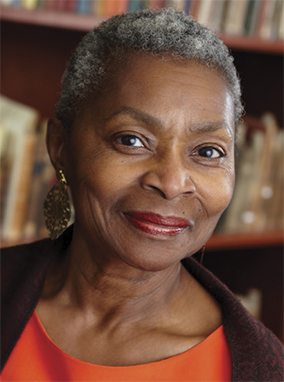HISTORIC BLACK VEGAS | Blacks in Virginia City – Part 2
April 30, 2023 by agutting@reviewjournal.com
Filed under Highlights
BY CLAYTEE D. WHITE
There is no Black-owned hotel in Nevada today. But in the mid-1800s, there was one in Virginia City. George D. Cottle owned the successful Virginia City Union Hotel and fought to establish civil rights and equality for Black residents.
William A.G. Brown, another Black business owner, was identified in 2003 when archaeologists conducted an excavation in Virginia City. Brown owned the Boston Saloon — where a mostly Black clientele drank from crystal goblets, played dominoes by the light of newly-patented gas lamps, and ate the finest food served on the finest china. The Saloon opened in 1864 and was located in the heart of the business district, across the street from Piper’s Opera House.
These businessmen were among about 100 Blacks living in Virginia City. Many worked as laborers, porters, and barbers. Some were formerly enslaved; and some, like Brown, were born free.
James Williams, a fugitive from slavery, took advantage of his freedom of movement to conduct business in California as well as Virginia City. Williams arrived in Nevada on the Comstock after mining ventures in California. He sold dry goods in both places, and acquired six pieces of property in Virginia City.
And like Williams, Amada Payne owned considerable property acquired by owning a boarding house. In addition to real property, Payne owned other businesses — including a saloon and restaurant.
We only know the trajectory of William Brown, who began his entrepreneurial pursuits polishing shoes on the streets above the Comstock Lode. After three or four years of shining shoes, he opened the famed Boston Saloon. Mark Twain mentioned the eatery in the Territorial Enterprise Newspaper as a “popular resort for the colored population.” Brown sold the Boston Saloon just prior to the great fire of 1875 that swept through town and destroyed the building.
According to an article published by the State Historic Preservation Office, “African-Americans and the Boston Saloon,” as mining declined by 1880, most of the population relocated; and when mining in Nevada revived in the early 1900s, a shift at the federal, state, and local levels implemented segregation via law or practice. This systemic racism kept Blacks from returning to communities like Virginia City.
If you visit Virginia City today, the Boston Saloon stood at Union and D Streets — now occupied by the Bucket of Blood Saloon parking lot. And in those environs, look for the ghosts of George D. Cottle, William A. G. Brown, James Williams, and Amada Payne.






